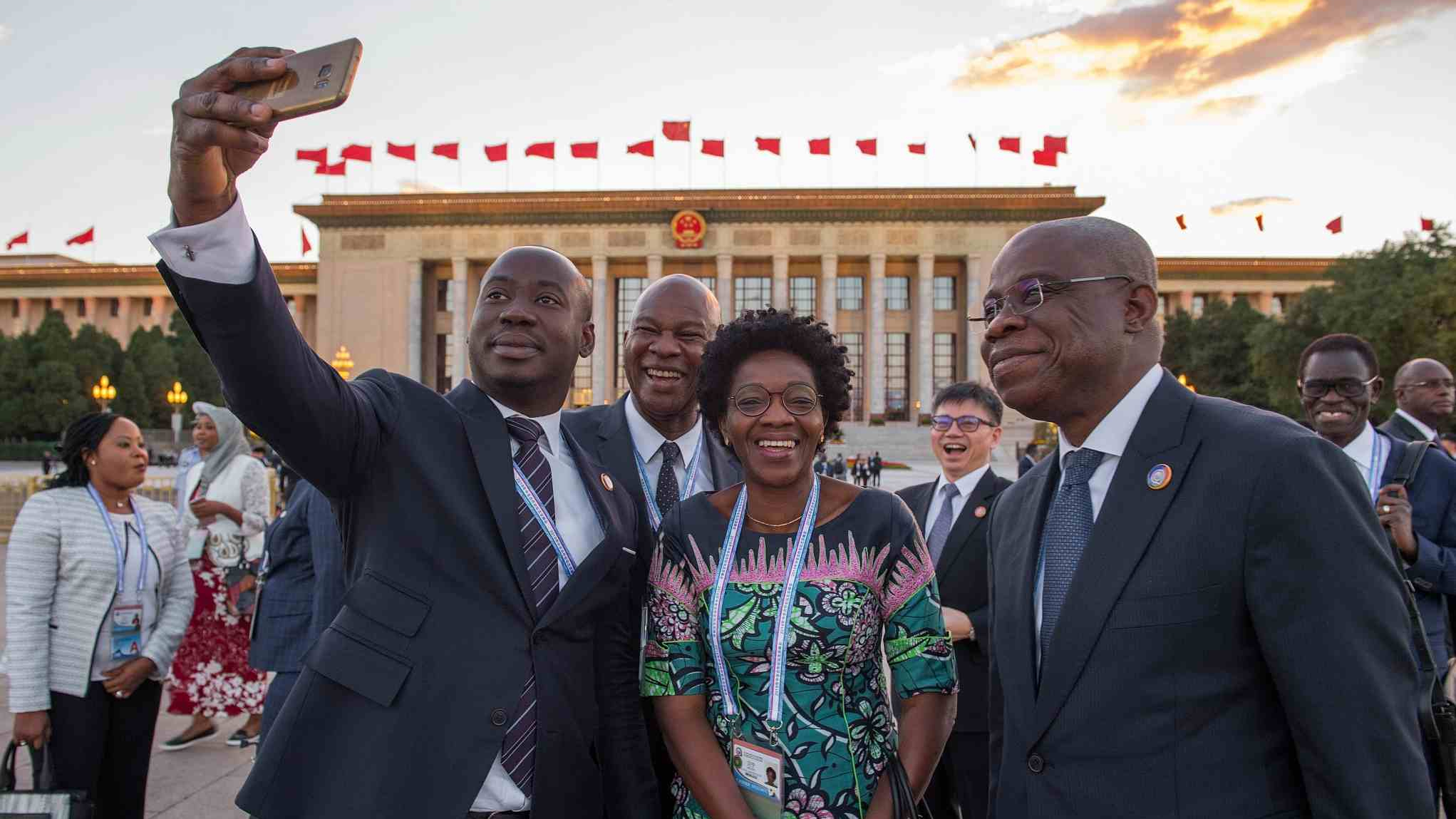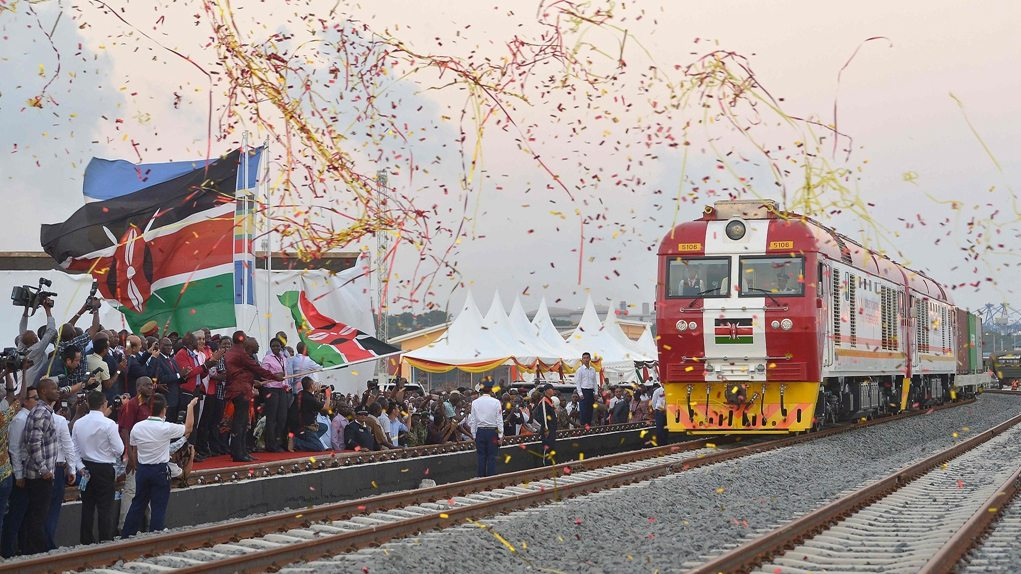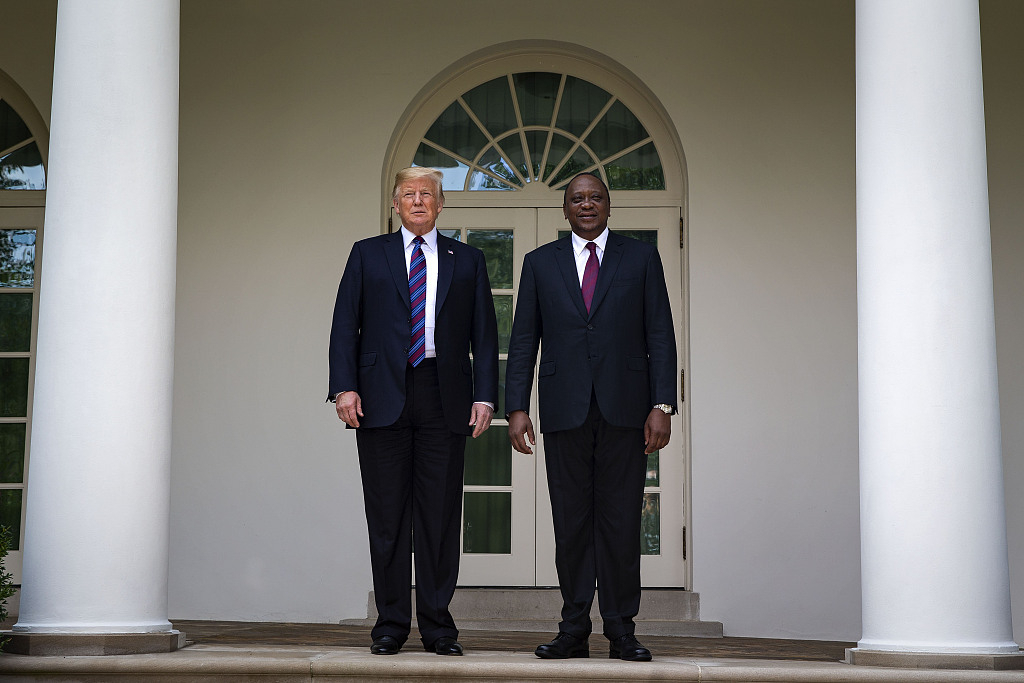
Representatives from African member states of the Forum on China-Africa Cooperation pose for photos in Beijing, September 3, 2018. /VCG Photo
Representatives from African member states of the Forum on China-Africa Cooperation pose for photos in Beijing, September 3, 2018. /VCG Photo
Editor's note: Andrew Korybko is a Moscow-based American political analyst. The article reflects the author's opinions, and not necessarily the views of CGTN.
CNBC published a provocative piece last week titled "The U.S.-China trade rivalry is underway in Africa, and Washington is playing catch-up," which misportrays both countries' trade relations with the continent as a "rivalry" even though America is incapable of competing with China there.
The statistics shared in the piece are factual, and it's indeed true that China's trade with Africa far surpasses that of the U.S., especially after the U.S.'s domestic energy production led to it importing less resources from the continent in parallel with China's increasing energy demands leading to it purchasing more of the same from there.
Concerning commercial ties, CNBC should be commended for quoting an expert who acknowledged that "a key challenge was the relatively high cost of U.S. export products such as cars, machinery and airplanes, versus China's production of goods for a comparatively diverse range of income levels".
That's also true, as is the comment about how China's infrastructure projects there "will aid U.S. businesses which depend on functioning transportation networks to move products and access consumers in countries with the lowest rail and road densities in the world."

The Chinese-built Mombasa-Nairobi Railway is Kenya's biggest infrastructure project since independence in 1963. /Xinhua Photo
The Chinese-built Mombasa-Nairobi Railway is Kenya's biggest infrastructure project since independence in 1963. /Xinhua Photo
The article would have been fine if that's all that was mentioned within it, but instead a certain segment of the piece includes fearmongering narratives about how China's growing economic influence in Africa allegedly encourages corruption and monopolization, which is supposedly why the U.S. must seek to counter it by increasing its own trade with the continent.
Those are absolutely false accusations without any relevance to reality, and the proposed solution is also equally unrealistic per the outlet's own reporting that relatively high-cost American exports can't compete with China's lower-cost ones that are more appealing to many.
Approaching the issue of American trade with Africa through the perspective of some kind of competition with China forgets the win-win benefits of the latter's investments that were touched upon in CNBC's piece, namely how all interested parties can make use of Beijing-backed infrastructure projects, especially in regards to improving African countries' standard of living through better quality and lower cost products as well as more job opportunities.
Every economic actor present on the continent already fills their own niche, and while these may change with time given market dynamics, they're all already playing a pretty constructive role in general.
In the event that some of them like the U.S. begin to reconceptualize their economic engagement with Africa as part of a larger global competition with China, then it might encourage decision makers to behave more aggressively in other domains, such as the political and possibly even military ones, thus destabilizing this conflict-beleaguered part of the world even more and therefore depriving it of the development that it so urgently needs as its population skyrockets and urbanization continues to grow at an uncontrollable pace. That would be one of the worst scenarios for Africa, which is why its partners should pool their efforts to help it.

U.S. President Donald Trump and Kenyan President Uhuru Kenyatta meet at the West Wing colonnade of the White House in Washington, DC, U.S., August 27, 2018. /VCG Photo
U.S. President Donald Trump and Kenyan President Uhuru Kenyatta meet at the West Wing colonnade of the White House in Washington, DC, U.S., August 27, 2018. /VCG Photo
The way forward isn't through competition, but cooperation, and a possible solution might be to hold a global investment conference for Africa where everyone can discuss their economic complementarities with one another as well as identify areas that require future investment, after which joint projects could be commissioned in order to build trust between different countries' businesses.
There will always remain some element of "friendly competition" by the very nature of free market dynamics in today's globalized world, but the intent is to keep them manageable and prevent their spread into the political and military domains.
It's counterproductive for the U.S. to consider itself as being in a "competition" with China in Africa since it simply can't compete with the cost and quality of its counterpart's exported goods and services there, so it's best for everyone if America agrees to jointly cooperate with China there as a future phase of the larger trade deal that they're negotiating with one another for stabilizing the global economy.
Africa, more so than any other place on this planet, cannot afford to become the scene of intense rivalry, so responsible members of the international community should do what's needed to prevent that from happening.
(If you want to contribute and have specific expertise, please contact us at opinions@cgtn.com.)